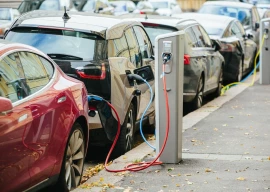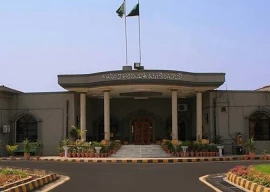Water is going to be the dominant concern in talks between India and Pakistan, as Baglihar and Kishanganga have already altered the dynamics.
This was the view of delegates participating in the Islamabad Dialogue II, an Indo-Pak Track 2 conference organised by Jinnah Institute and Centre for Centre of Dialogue and Reconciliation.
The participants of the dialogue said water crisis in the Indus Basin is hard to exaggerate, given the heavy dependence on irrigated agriculture in Pakistan and India. Water stress presents serious challenges for growing population needs, industrialisation and development in the Indus Basin, said experts.
The group stressed that a demand efficiency focus needs to be developed and debated, as opposed to a supply oriented view. India and Pakistan need to cater to the ecological and environmental changes that are taking place in the region.
The dialogue was attended by policy experts, former diplomats, members of the media and academic communities from both sides. In a session on bilateral relations, participants stated that now is a watershed moment for both India and Pakistan.
Besides positive developments on trade, much more needs to be done to curb extremism within both countries, noted discussants from both countries.
They also agreed that the two countries also need to contain the violence threatening to spill out of Afghanistan in the lead up to ISAF/NATO withdrawal in 2014.
On trade, the participants agreed that Indo-Pak trade needs to look at regions and sub-regions in an attempt to connect both sides of Punjab and Sindh with Gujarat and both sides of Kashmir.
The conference delegates debated the ways in which trade integration was affecting small manufacturers under a liberalised trade regime, non-tariff barriers and improvement of commercial infrastructure.
Some of the participants of the conference from India included Sushobha Barve (Executive Director CDR), Prem Shankar Jha (newspaper editor, Author and Columnist), Ramaswamy R. Iyer (former Secretary Water Resources, Government of India), Dr Rajan Sethuratnam (Director Cardiac Surgery), Jyoti Malhotra (Freelance Journalist), Wasim Bhat (Programme Coordinator CDR), Siddharth Varadarajan (Delhi Bureau Chief, The Hindu), Arunabha Ghosh (CEO Council on Energy Environment and Water), Shakil Romshoo (Head of Earth Sciences Department, University of Kashmir), Salman Haider (former Foreign Secretary of India), Rekha Chowdhary (Professor of Political Science, Jammu University), Mohammad Sayeed Malik (Chief Editorial Consultant, Kashmir Times), Manvendra Singh (former BJP MLA).
From Pakistan, Aziz Ahmad Khan (Honorary Vice President Jinnah Institute), Javed Jabbar (Chief Executive JJ Media), Khalid Mohtadullah (Country Director Pakistan IWMI), Ahsan Iqbal (PML-N MNA), Dr. Ijaz Nabi (Country Director IGC), Sardar Khalid Ibrahim (former MLA Azad Jammu & Kashmir), Sania Nishtar (Founder Heartfile), Dr Naeem-ud-Din Mian (CEO Contech International), Dr. Muhammad Latif (water resources and irrigation expert), Sardar Attique Ahmad Khan (former Prime Minister AJK), and Raza Rumi (Director Policy and Programs Jinnah Institute) attended.
Published In The Express Tribune, June 6th, 2012.
COMMENTS (2)
Comments are moderated and generally will be posted if they are on-topic and not abusive.
For more information, please see our Comments FAQ

1725612926-0/Tribune-Pic-(8)1725612926-0-165x106.webp)















India will complete 40 dams over Jhelum & Chenab. Out of which 4 large dams & 16 small have become operational. India is building world's 3rd largest dam Kargil on river Sindh. Also a water tunnel is now working and taking 45% water of river Sindh. India has completed disputed Baglihar dam on river Chenab. This is Water War. Why we and our government criminally sleeping.
India is happy with IWT. It is Pakistan who is not happy. India has NEVER violated the treaty and Pakistan's accusation's against India have been proved as falsehood by the WB arbitrator.
India is being overly generous by giving more than 50% of the water to Pakistan. Isn't it fair that the Country where the river is born gets less than 50% of the water?
I am all for IWT, if Pakistan wants renegotiation, then India should ask for a 50-50 settlement. But, then Pakistan will have very less water for its burgeoning population numbers.But, its not India's problem, is it.